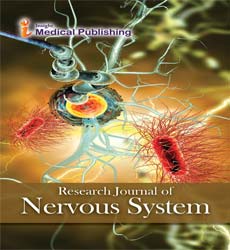Reach Us
 +447897072958
+447897072958
SUMO control of nervous system development
Visit for more related articles at Research Journal of Nervous System
Abstract
In the last decades, the post-translational modification system by covalent attachment of the SUMO polypeptide to proteins has emerged as an essential mechanism controlling virtually all the physiological processes in the eukaryotic cell. This includes vertebrate development. In the nervous system, SUMO plays crucial roles in synapse establishment and it has also been linked to a variety of neurodegenerative diseases. However, to date, the involvement of the modification of specific targets in key aspects of nervous system development, like patterning and differentiation, has remained largely elusive. A number of recent works confirm the participation of target-specific SUMO modification in critical aspects of nervous system development.
Select your language of interest to view the total content in your interested language
Open Access Journals
- Aquaculture & Veterinary Science
- Chemistry & Chemical Sciences
- Clinical Sciences
- Engineering
- General Science
- Genetics & Molecular Biology
- Health Care & Nursing
- Immunology & Microbiology
- Materials Science
- Mathematics & Physics
- Medical Sciences
- Neurology & Psychiatry
- Oncology & Cancer Science
- Pharmaceutical Sciences
